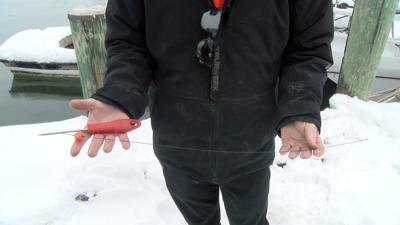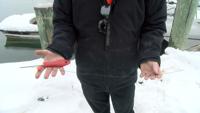ANNAPOLIS, MD - Maryland Gov. Wes Moore has thrown his support behind new legislation aimed at improving the Chesapeake Bay while bolstering the industries that rely on its waters.
The proposed Chesapeake Bay Legacy Act includes several measures designed to clean the bay and support local watermen. One provision in the bill would allow watermen to use a Japanese fish processing technique called ikejime without requiring a license.
Ikejime, which involves driving a spike into a fish’s brain and threading a cord through its spine, is known for preserving the quality of the meat.
"It definitely adds a different level because when a fish is taken out of the water it can release adrenaline, and that adrenaline can release, I believe, lactic acid in the fish, which I think breaks down the muscles in the fish," said Nick Hargrove, owner of Wittman Wharf, a catfish processing plant.
Hargrove says ikejime could increase the value of fish sold by Maryland watermen. However, concerns remain over federal regulations.
"It’s gonna be down to how the USDA views that. If they consider it a form of processing, then that's gonna cause a lot of issues for the fishermen to be able to perform those tasks on the boat and not in a controlled environment," Hargrove said.
Despite potential regulatory challenges, Hargrove believes the practice could benefit both processors and commercial fishermen.
"In the world where fishermen are getting quota reductions all the time, to just do a simple process like this that can add more value to their catch is a win-win situation for both the processors and the commercial fishermen," he said.
The Chesapeake Bay Legacy Act is still in the early stages of discussion in Annapolis. If passed, the legislation would take effect July 1 in Maryland.


